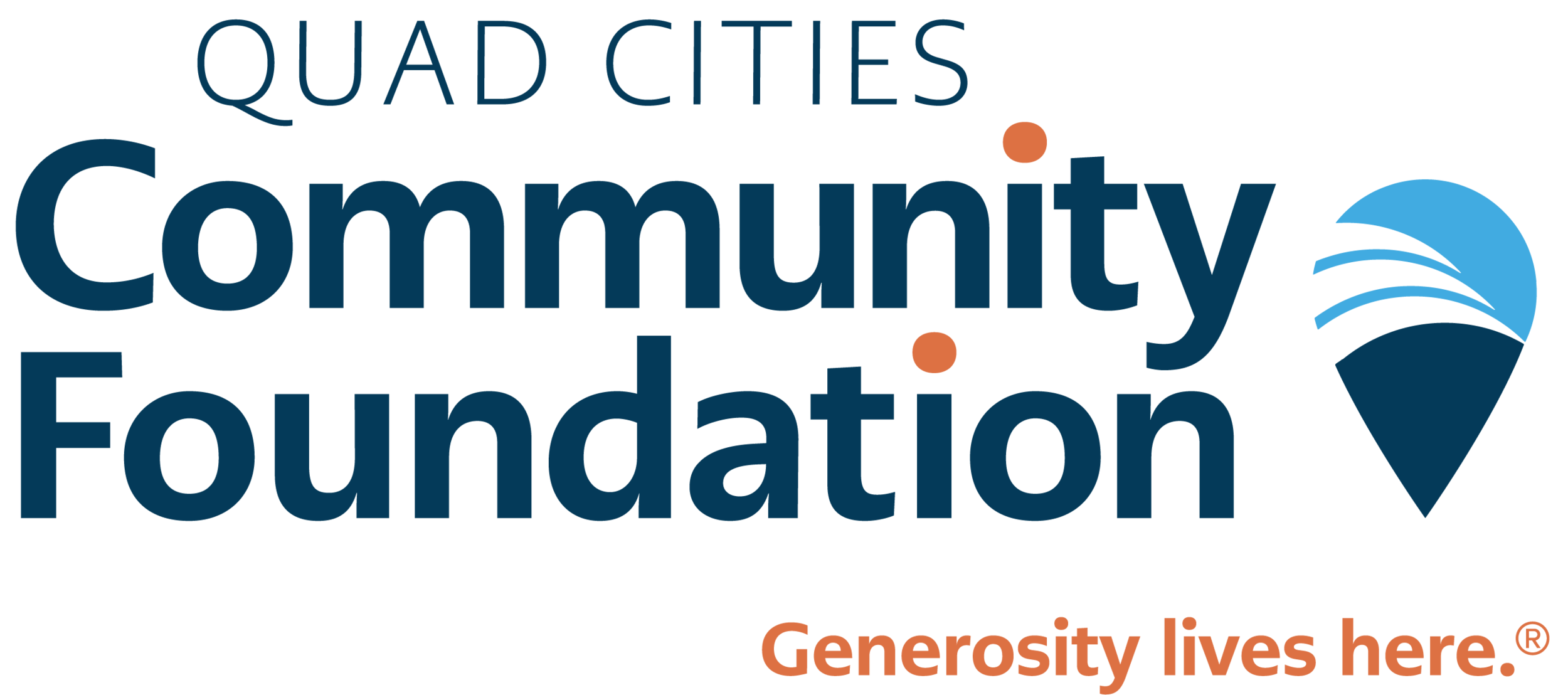Local teens in youth philanthropy program at the Community Foundation open grant application process for nonprofit organizations
When Jessica Elliott and her fellow Quad Cities Community Foundation Teens for Tomorrow members were narrowing down their list of community issues that could be awarded grants this year, she picked the human trafficking research group for one reason.
“I wanted to learn,” said Elliott, a 16-year-old junior from Davenport Central High School. “I called one of the local nonprofits in the Quad Cities, and what I learned was both interesting and horrifying. I thought human trafficking only happened in places like Chicago and New York—not here. But the reality is that it does, and it takes an entire community to do something about it.”
Learning more about the needs of her community has been one of the highlights of her time with the youth philanthropy program at the Community Foundation. Each year, a cohort of students from the Quad Cities immerse themselves in the grantmaking process by learning about community needs, developing a grant opportunity, evaluating applications, making site visits, and recommending grants to the Community Foundation board of directors for approval. Students can participate for two years once accepted.
Applications for 2018 Teens for Tomorrow Grants are now available here. Grants are available to organizations in Rock Island County, Illinois, and Scott County, Iowa. The application deadline is March 1 and awards will be announced in early May.
This year’s cohort will make grants in four areas important to the students:
environment, which includes protecting and improving local land, water and air quality;
human rights, which includes protecting local people’s rights, fighting discrimination and opposing hate;
human trafficking, which includes combating the illegal transport of people for forced labor or sexual exploitation; and,
mental health, to organizations increasing and maintaining the psychological and emotional well-being of people in the community.
“We are incredibly proud of the diligence and seriousness with which our Teens for Tomorrow members research and discuss the issues that matter most to them,” said Kelly Thompson, vice president of grantmaking and community initiatives, who leads the student group. “Through their eyes, we have an opportunity to learn more about what matters most to our young people. Offering these students—and others—a platform to support people who are finding solutions in the Quad Cities is an important role we play in the community.”
The cohort originally chose the four issues after a wide-ranging discussion about the needs and services in the region, and breaking into groups to do research. Elliott said she normally would have chosen the environment topic as she hopes to become a marine biologist or zoologist someday, but there was something about going outside her comfort zone that was important to her. “You get a new outlook,” she said, and hers has changed drastically when it comes to the human trafficking crisis around the world—and in particular, in the Quad Cities.
In her conversations with a staff member at a local nonprofit that provides help to trafficking victims, Elliott said her eyes were opened to the severity of the problem. She learned that despite improved legislation to combat the issue, almost 21 million victims have been exploited, resulting in a $150 billion worldwide industry. Runaways, Elliott added, are a prime target for exploitation. In 2016, one in six runaways were trafficked. “And it happens a lot more here than anyone would imagine,” she said. “I was taken aback at everything I learned.”
Becoming more educated, and in turn, educating others is one of the reasons she is excited about the topics that were chosen this year. Human rights and human trafficking, in particular, she said, have fewer local resources than other issues they have addressed in the past.
“These topics will really raise awareness,” she said, which help in the long-run as the local community works to address issues.
Assisting nonprofits is a huge responsibility, she added. “We’re 15 to 18 years old, and we can’t vote,” she said. “But we can give out $10,000, and that’s crazy… crazy awesome.”
In her second and final year as a member of Teens for Tomorrow, Elliott is now sold on a program she says has solidified her desire to continue lifelong volunteer work and has altered her perspective on her community. “It’s opened up my horizons and helped me see my community in a different way.”
